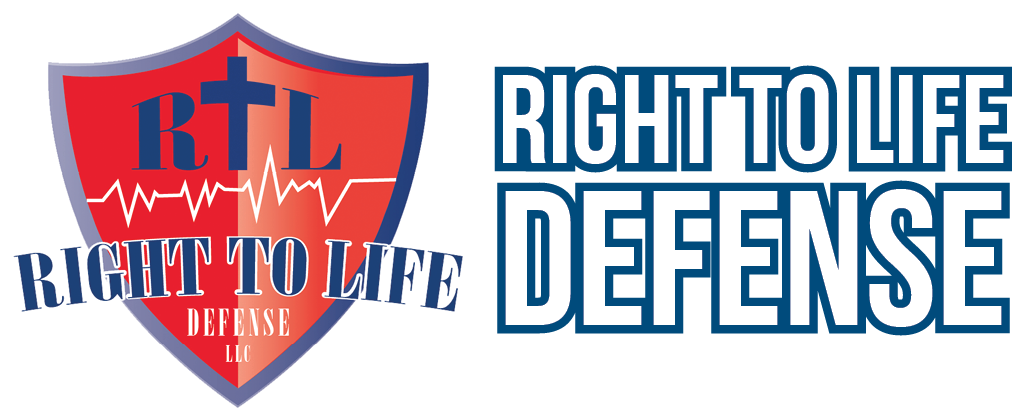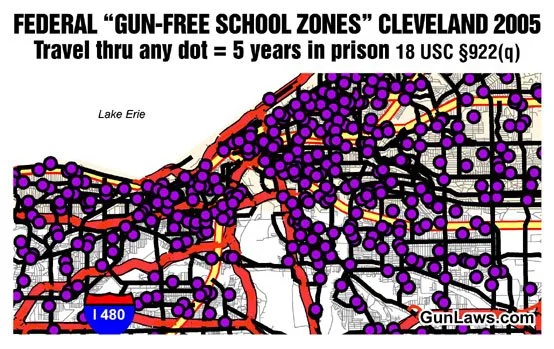Why Get a Concealed Handgun License in Ohio’s Constitutional Carry Era?
In June 2022, Ohio became a Constitutional Carry state, allowing qualifying adults aged 21 and older to carry concealed handguns without a permit. This shift, enacted through Senate Bill 215, marked a significant expansion of Second Amendment rights, freeing many Ohioans from the need for a Concealed Handgun License (CHL). However, despite this freedom, obtaining a CHL still offers distinct advantages, especially when navigating complex legal landscapes like the federal Gun-Free School Zones Act (GFSZA). This post explores why a CHL remains valuable and highlights potential pitfalls of relying solely on Constitutional Carry, particularly in school zones.
The Benefits of a Concealed Handgun License
1. Reciprocity Across State Lines
Ohio’s Constitutional Carry law applies only within the state. If you travel to one of the 22 states with which Ohio has reciprocity agreements, a CHL ensures you can legally carry in those states, provided you follow their laws. For frequent travelers, this is a game-changer. Without a CHL, you’d need to research each state’s laws, which can vary widely and may not recognize Ohio’s permitless carry. A CHL simplifies compliance, offering peace of mind and legal clarity when crossing state borders.
2. Formal Training for Safety and Confidence
Obtaining a CHL requires completing at least 12 hours of firearms training, including classroom instruction and a physical demonstration of safe handling. This training equips you with critical skills, from proper storage to defensive shooting techniques. Even experienced gun owners can benefit from structured learning, which fosters safer habits and may strengthen your legal standing in a self-defense situation. Courts and law enforcement often view certified training favorably, as it demonstrates a commitment to responsible gun ownership.
3. Legal Protections in Specific Scenarios
A CHL can provide exemptions in restricted areas where Constitutional Carry alone falls short. For example, Ohio law allows CHL holders to carry a concealed handgun in a vehicle within a school safety zone, as long as the firearm remains in the vehicle and the vehicle is locked if you exit. This is a significant advantage, as we’ll discuss further when examining the GFSZA. Additionally, a CHL can clarify your status during interactions with law enforcement, potentially reducing misunderstandings.
4. Enhanced Credibility and Responsibility
While not mandatory, a CHL signals to others—whether law enforcement, employers, or the public—that you’ve undergone a background check and training. This can enhance your credibility as a responsible gun owner. In a society where gun ownership is often scrutinized, a CHL can serve as a proactive step to demonstrate your commitment to safety and compliance.
5. Background check exemption when purchasing firearms
Ohio has entered into an agreement with ATF that allows Ohio CHL holders to bypass background checks when purchasing firearms. This is known as Permit Exemption. Not all states with CCW permits have this ability. Any state that offers a lifetime permit will not qualify for the agreement to have the exemption. It should be noted however, that many large retailers are not honoring the Permit Exemption and will still require a background check for you to purchase a firearm from them. Right To Life Defense honors the permit exemption and if you have a valid Ohio CHL, you will only need to fill out the form 4473 and your CHL information will be entered into it. No background check with the FBI NICS system will be conducted, saving you what could be significant time and hassle.
Navigating the Federal Gun-Free School Zones Act
The federal Gun-Free School Zones Act (GFSZA), enacted under 18 U.S.C. § 922(q), prohibits possessing a firearm within 1,000 feet of a public, private, or parochial school offering elementary or secondary education. This federal law creates significant challenges for concealed carriers, especially in Ohio’s Constitutional Carry environment. Here’s why:
1. The CHL Exemption
The GFSZA includes an exemption for individuals with a state-issued concealed carry permit, but only in the state that issued the permit. In Ohio, this means a CHL holder can legally possess a firearm in a vehicle within a school zone, provided they don’t enter school premises or activities and comply with state laws (e.g., locking the vehicle if exiting). Without a CHL, however, Constitutional Carry offers no such exemption under federal law. If you drive through a school zone with a loaded handgun on your person or in your vehicle, you could face federal felony charges, even if you’re compliant with Ohio’s permitless carry law.
2. Ubiquitous School Zones
Schools are everywhere—urban, suburban, and rural areas alike. The 1,000-foot radius around a school can encompass public roads, residential areas, and even your own property if you live near a school. For example, driving through a small town like Milan, Ohio, where a school abuts a main road, could inadvertently place you in a school zone. Without a CHL, you’d need to unload your firearm, store it in a locked container, and ensure it’s inaccessible while in the zone—a cumbersome process that’s impractical for daily routines.
3. Ambiguity and Enforcement Risks
The GFSZA’s broad definition of a school zone, which includes school activities and buses, can create confusion. For instance, a school event at a community center might extend the restricted zone, catching unaware carriers off guard. While federal prosecution for GFSZA violations is rare, the potential for a felony charge is a serious risk. A CHL mitigates this by providing a clear legal exemption, allowing you to carry in a vehicle without the constant worry of violating federal law.
4. State vs. Federal Law Conflicts
Ohio’s school safety zones align with the GFSZA but are broader, including school activities and buses beyond the federal 1,000-foot radius. Constitutional Carry allows permitless carry in some of these areas (e.g., off-campus school activities not in a federal school zone), but without a CHL, you lose the federal exemption for vehicle carry in school zones. This discrepancy can lead to unintentional violations, especially for those unaware of the federal law’s nuances.
Practical Considerations for Ohio Gun Owners
To carry responsibly in Ohio, consider these steps:
Get a CHL for Flexibility: Even with Constitutional Carry, a CHL offers reciprocity, training, and legal protections, particularly in school zones. The process involves a background check, training, and a small fee, but the benefits often outweigh the effort.
Know Your Routes: Map out school zones on your daily routes. If you live or work near a school, a CHL can simplify compliance with the GFSZA.
Stay Informed: Gun laws evolve, and federal enforcement priorities can shift. Regularly check resources like the Ohio Attorney General’s website or organizations like the Buckeye Firearms Association for updates.
Practice Safe Handling: Whether you have a CHL or not, prioritize safety. Voluntary training, even if not required, can enhance your skills and preparedness.
Conclusion
Ohio’s Constitutional Carry law empowers qualifying adults to carry concealed handguns without a permit, but a CHL remains a valuable tool for responsible gun owners. From ensuring reciprocity in other states to providing critical exemptions under the federal Gun-Free School Zones Act, a CHL offers legal clarity and peace of mind. The GFSZA, with its 1,000-foot school zone restriction, poses a significant challenge for permitless carriers, as it lacks an exemption for those relying solely on Constitutional Carry. By obtaining a CHL, you can navigate these complexities with confidence, ensuring you exercise your Second Amendment rights safely and legally.
Should you decide an Ohio CHL is the way to go, please contact us or visit our e-Learning page for online classes. (There is a practical portion of getting a CHL you can’t do online, and we can help you with that as well)
For more information on Ohio’s gun laws, visit the Ohio Attorney General’s website or consult a firearms attorney. Stay safe, stay informed, and carry responsibly.

